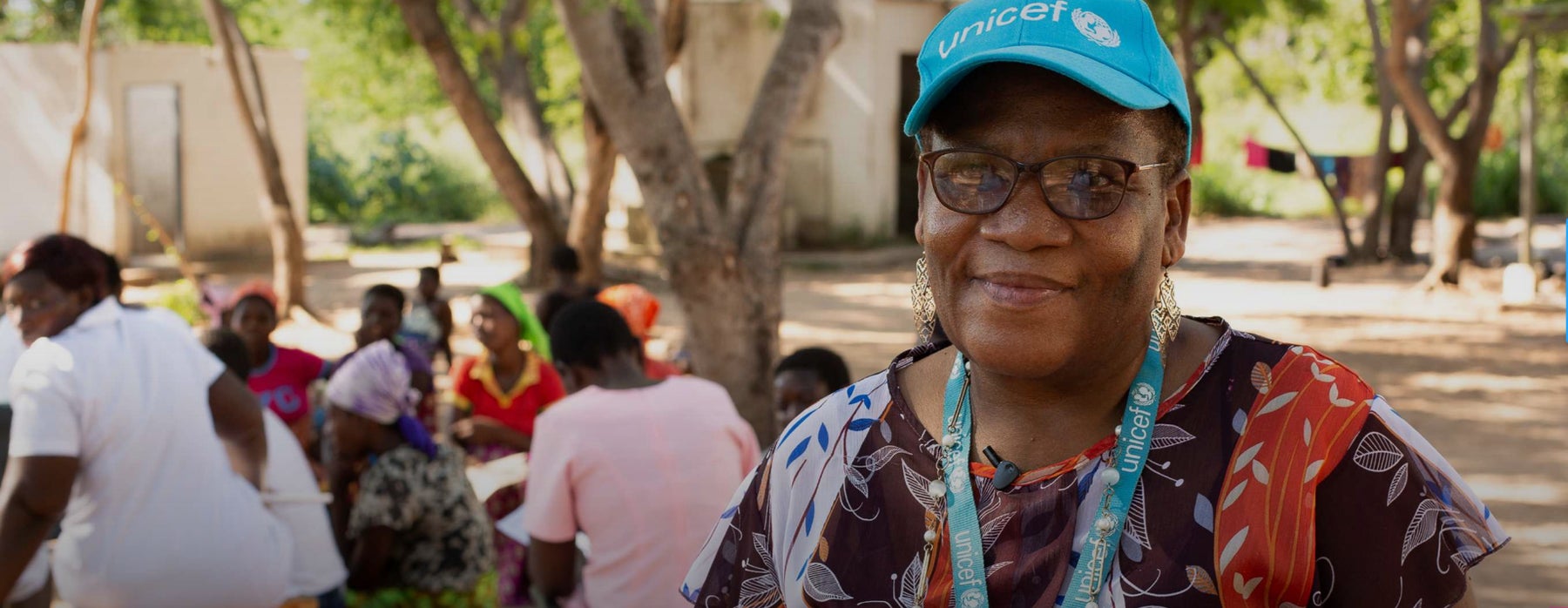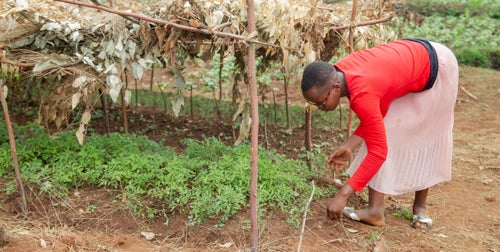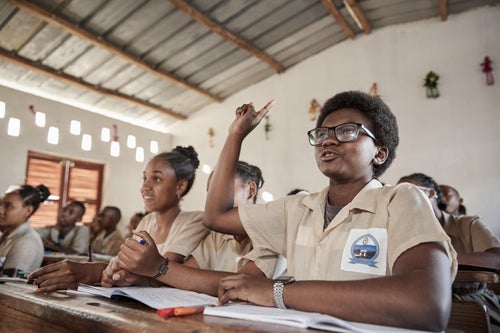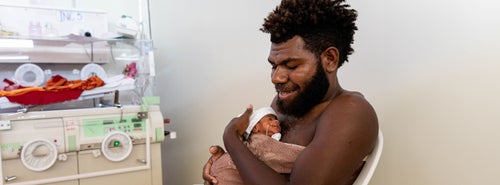Shelly has dedicated her life to working for the rights and survival of even the most at-risk newborns. She knows first-hand the hardship the country's economic crisis will cause inside homes across Zimbabwe.
Zimbabwe's newborn mortality rate has increased amidst a forgotten crisis.
Shelly has worked in maternal and newborn healthcare for her entire career. First as a midwife, where she was responsible for bringing “at least” a thousand new Zimbabweans into the world. And now, as UNICEF Zimbabwe’s Health Specialist, where she’s making sure mothers and newborns have the best chance of survival in one of the world’s most dangerous places to be pregnant.
Mothers in Zimbabwe are more than 76 times more likely to lose their lives during childbirth than in Australia. The healthcare sector hasn't always been under this level of strain however.
Over the course of her 30-year career, Shelly’s seen Zimbabwe move between times of elation and extreme hardship.
Right now, she’s worried.
“We are looking at Zimbabwe. Everything is just collapsing. The road network is collapsing. We have no fuel in the country. Right now, it is bleak,” she says. “In this current situation, it’s a hard job to bring life into the world.”
One of Shelly’s most devastating experiences as a midwife came after a routine job for her and fellow medical staff; travelling out to rural areas to collect a woman giving birth.
On one of these trips the mother and newborn both passed away before reaching the hospital.
“When the husband followed the following day, because he couldn’t get into the ambulance, when he was walking towards me, he looked excited because he hoped things did go well at the hospital. So, I had to deliver the sad news that we’d lost the wife and we’d lost the baby. And this was a young mother with two more children at home all under the age of five. So as a midwife when you get to that situation you really feel bad,” Shelly says.
Zimbabwe is facing extreme challenges right now in the healthcare sector; drought, power and fuel shortages have made giving birth very dangerous. On top of this, amid warnings from the World Health Organisation that Africa must prepare for an increase in coronavirus infections, the country has gone into lockdown and many UNICEF programs have shifted focus towards preparedness and prevention.
The country is still battling to increase mass testing and the number of treatment clinics; adding an unprecedented strain on hospitals.
As a result of the traumatic conditions under which healthcare staff work, many are talking about a ‘brain drain’ across the country. A lot of the best doctors and nurses are leaving Zimbabwe to work in neighbouring countries with better remuneration and facilities.
“Nobody wants to watch a woman bleed to death or have a fit convulsion and they die because you have no drugs or the medicines are not there,” Shelly says, worried about what this means for the future of the sector.
UNICEF’s work is crucial right now as we fill these absolutely devastating gaps by providing essential services and supporting hospitals and staff.
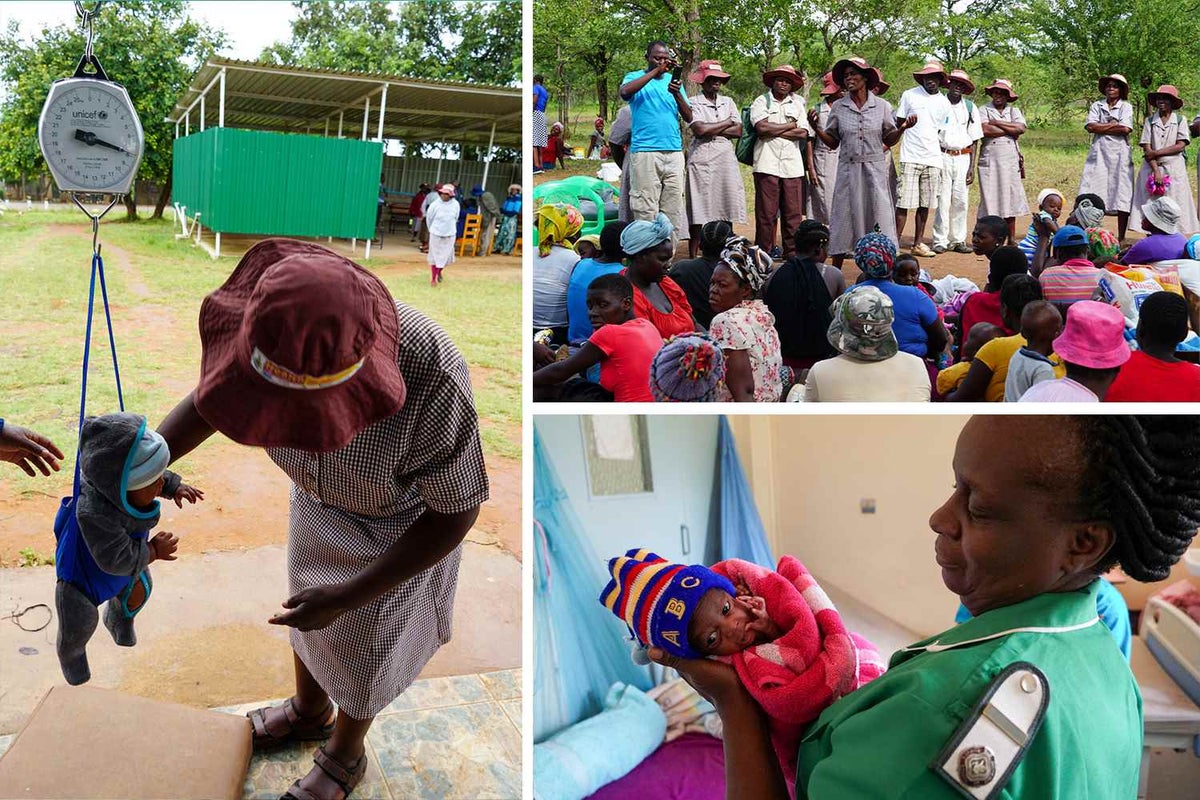
“This year, 2020, we are trying to support the central hospitals, so that they really work as referral institutions of higher care, so that all the premature babies who are referred from lower levels can get optimum care,” says Shelly.
Sadly, the newborn mortality rate in the country continues to rise.
This is something UNICEF Zimbabwe is urgently working to solve, looking to find out what is leading to the ongoing increase in newborn deaths, while also providing immediate solutions to help curb the issue.
“We’re still not seeing a decline in newborn mortality,” says Jennifer Barak, UNICEF Zimbabwe’s Health Manager. “So this year we’re looking at strengthening perinatal death audits to find out the reasons behind why these babies are dying.”
The team are also looking at near misses and positive cases to look at what interventions saved the life of at-risk babies to better understand which skills and equipment midwives need to have the best chance at keeping a newborn alive.
While the situation is inarguably tough and getting tougher, Shelly says the people of Zimbabwe are very resilient: “We work hard. We want the best for ourselves and for our children. I’m so hopeful that things are going to change”.
Shelly, like many in her country, hopes that they can return to the elation and prosperity of the 1980s. The country had just gained its independence from the colonial government and had changed its name from the British-imposed Rhodesia to Zimbabwe; named after the country’s oldest settlements and kingdoms. At this time, Zimbabwe was taking back its identity and investing heavily in social infrastructure, healthcare and education.
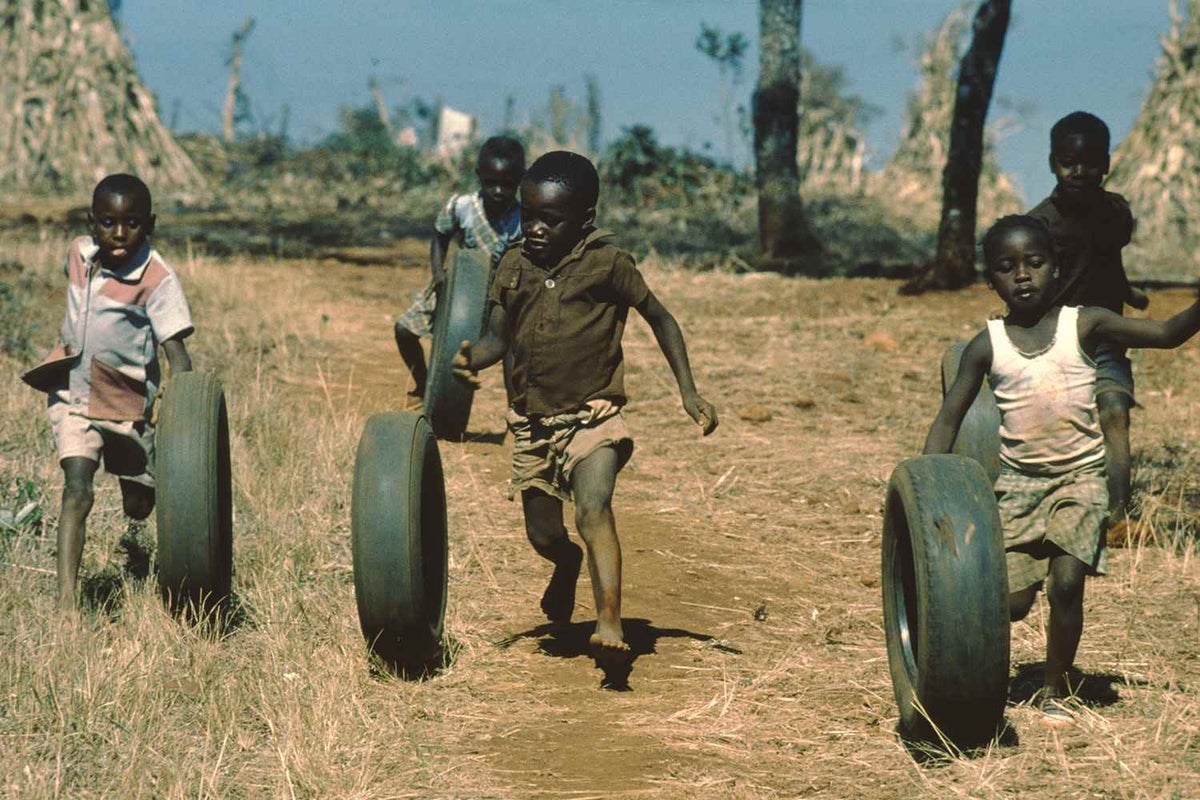
As these investments indebted the country however, Zimbabwe has since struggled to keep up with this success. The economy has now become so inflated that healthcare workers’ salaries have effectively been reduced to nothing. Many doctors and nurses stopped going to work.
As a result, extreme disruptions to healthcare services have been felt across the country.
Shelly knows what it really takes to work under these conditions, “We really do have champions in our hospitals. The people who have remained in those hospitals. I support them.” She says.
“I’m always asking myself ‘Would I have continued to work under those conditions?’ But they are there. They need supplies. Even if they’re trained and have the skills, they don’t have anything to use, those skills only. I wish things would be better for the nurses and the midwives who are still continuing to work in their hospitals, trying to save mothers, trying to save newborns. If we could only give them what they require it would save lives.”
UNICEF will continue to work in these remote regions and provide assistance to every child who needs us. “I also want to say thank you to the people of Australia, and to the government of Australia, for all their support that they’ve provided. I think they need to know that they’ve saved lives in Zimbabwe.” Says Shelly.
“I still believe no woman should die while giving life. I still believe that every mother should go home with their newborn.”
Want to help? You can donate to Shelly's ongoing mission to the rights and survival of every child in Zimbabwe here.
Related articles
Stay up-to-date on UNICEF's work in Australia and around the world



